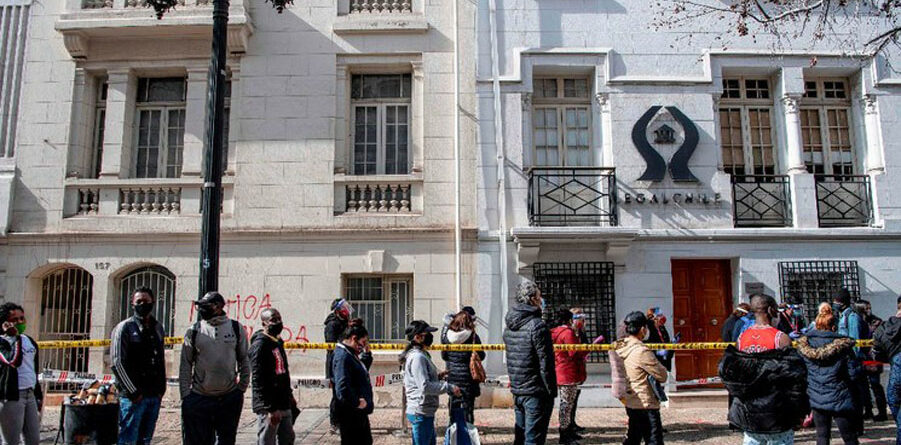Chileans tapped into pensions to survive the pandemic – now what?
Chile’s celebrated $200bn private pensions system, based on individual capital accounts, has served as a model for dozens of emerging markets since it was established 40 years ago during the military dictatorship of Augusto Pinochet.
The system was trailblazing: Chile was the first country to eschew a government-backed pension system and replace it with mandatory private retirement savings.
Read also Latin America. What Comes After the Commodity Super Cycle and the Pandemic? Policies to Tackle Poverty and Inequality in Latin America
Over the past several decades, Chile has boasted one of the fastest-growing economies in Latin America. But the narrative of the neoliberal “Miracle of Chile” obscured severe inequalities. More than 30 percent of the country’s people are considered economically vulnerable, according to the World Bank, and income inequality remains persistently high.
Read also A healthier future for the Mexican pension industry
But today, in the midst of the COVID-19 crisis, the free-market pension model of the Chicago Boys — Chilean economists who trained at the University of Chicago in the 1970s, under neoliberal icon Milton Friedman — is facing an “existential crisis”, experts say.
Read also Can Climate Change Impact Your Retirement?
In need of reform
Chile’s government spends 2.2 percent of its total economic output each year on pensions, according to the International Monetary Fund (IMF). For Chile’s private Pension Fund Administrators — Administradoras de Fondos de Pensiones (AFPs), which collect fees for managing portfolios — it has been enormously profitable.
But the system is designed to benefit those who are consistently employed in the formal economy and are thus able to make regular payments.
Meanwhile, people who toil in Chile’s large informal economy — which employs one-third of the working-age population, according to the Organisation for Economic Co-operation and Development (OECD) — are often left facing significant retirement fund shortfalls.
That is because workers in the informal sector are typically poorly paid and have little job security. They have little if anything to contribute to their personal retirement accounts over the course of their working lives.
The obvious flaws in the pension scheme are born out by the numbers. Some 80 percent of pensioners in Chile receive less than the minimum wage ($450) per month in retirement.
Anger over the inequities embedded in the pensions system has sparked widespread unrest in the country.
In October 2019, millions of Chileans took to the streets in nationwide protests to demand greater equality, the end of the pension funds system and the right to quality education and healthcare.
A poll published in June by the state-run private pension funds administrator found pension reform remains a top priority for Chileans, edging out both crime and healthcare reform.
Unprecedented withdrawals
When members of the National Congress of Chile proposed letting Chileans withdraw their pension funds to ride out the economic and health crisis caused by COVID-19, Chilean President Sebastian Pinera voiced his opposition to the plan. But the bill spearheaded by opposition lawmakers passed, and Pinera signed it into law on July 24, 2020, allowing citizens to withdraw up to 10 percent of their pensions to weather the COVID-19 crisis.
Read more @Aljazeera
453 views










